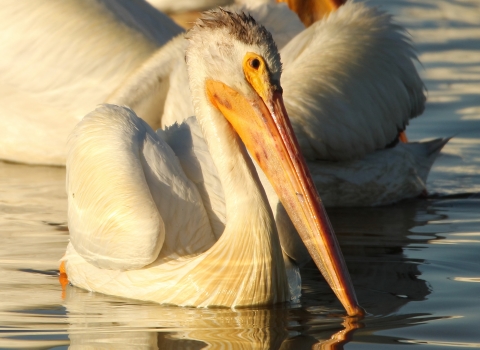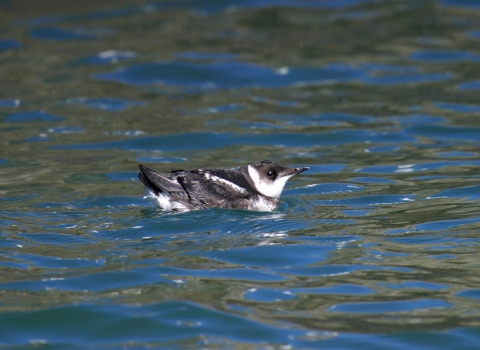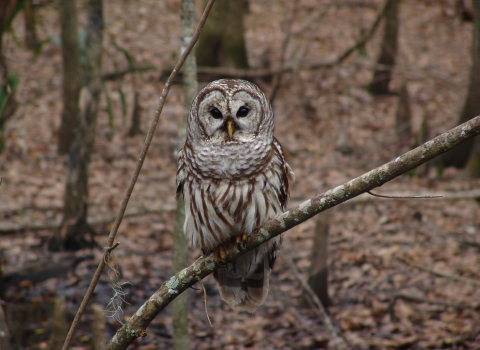Migratory birds throughout the Western Hemisphere will benefit from $3.6 million in grants for 29 collaborative conservation projects across the Americas, the U.S. Fish and Wildlife Service announced today.
The Neotropical Migratory Bird Conservation Act grants will leverage the Service’s investment with nearly $12.1 million in additional private funds—a more than 3-to-1 match. The projects will conserve migratory bird habitat, stimulate critical research into declining bird populations, and strengthen international relations, raising awareness of the importance of bird conservation.
“Migratory birds are an integral part of the landscape the Service seeks to conserve for the benefit of the American people,” said Service Director Dan Ashe. “Collaboration with our partners on conservation projects throughout these birds’ breeding and winter ranges is essential to protect their habitats and to reduce threats.”
There are 386 species of neotropical migratory birds that migrate to and from the United States each year, including songbirds, shorebirds and other bird species. Populations of many of these birds are in decline, and several species currently are considered in need of special conservation attention as a result of habitat loss, pollution, human disturbance or climate change climate change
Climate change includes both global warming driven by human-induced emissions of greenhouse gases and the resulting large-scale shifts in weather patterns. Though there have been previous periods of climatic change, since the mid-20th century humans have had an unprecedented impact on Earth's climate system and caused change on a global scale.
Learn more about climate change .
The Neotropical Migratory Bird Conservation Act of 2000 established the matching grants program to fund projects to conserve neotropical migratory birds in the United States, Canada, Latin America and the Caribbean. Funds may be used to protect, research, monitor and manage bird populations and habitat, as well as to conduct law enforcement and community outreach and education.
This year’s grants will benefit hundreds of species in 18 countries, conserving neotropical migratory birds from breeding sites in Canada and the United States to wintering sites in Mexico, Central and South America, and the Caribbean. Project highlights include:
- U.S.- Mexico Grassland Bird Conservation, Phase XI : This project will continue work funded by the Neotropical Migratory Bird Conservation Act since 2002 to conserve high-priority and declining grassland bird species of western North America. This phase focuses on understanding the distribution, abundance and habitats of five species: Baird’s sparrow, chestnut-collared longspur, lark bunting, Sprague’s pipit and loggerhead shrike.
- Protecting Cerulean and Golden-winged Warblers in Colombia, Phase II: Two of the most threatened neotropical migratory landbirds are the cerulean and golden-winged warblers, which depend on tropical forests across Colombia for their survival. This project will protect 23 areas identified in conservation plans as being critical for the warblers. The project also incorporates ecotourism and sustainable development initiatives that benefit local communities.
- Engaging Youth in Science and Conservation through Caribbean BirdSleuth: The goal of this project is to develop a strong conservation ethic in young people and promote commitment to environmental stewardship by increasing knowledge and interest in birds. The innovative Caribbean BirdSleuth curriculum includes bird identification skills, citizen science activities and inquiry-based learning.
- Conservation Action for Bicknell’s Thrush on its Canadian Breeding Grounds III: The objectives of this project are to partner with timber companies and management agencies to develop and implement Best Management Practices and conduct targeted outreach in communities surrounding unprotected areas to secure long-term support for and protection of Bicknell’s thrush and its habitat.
For more information on funded projects for 2014 and previous years, visit http://www.fws.gov/birdhabitat/Grants/NMBCA/



